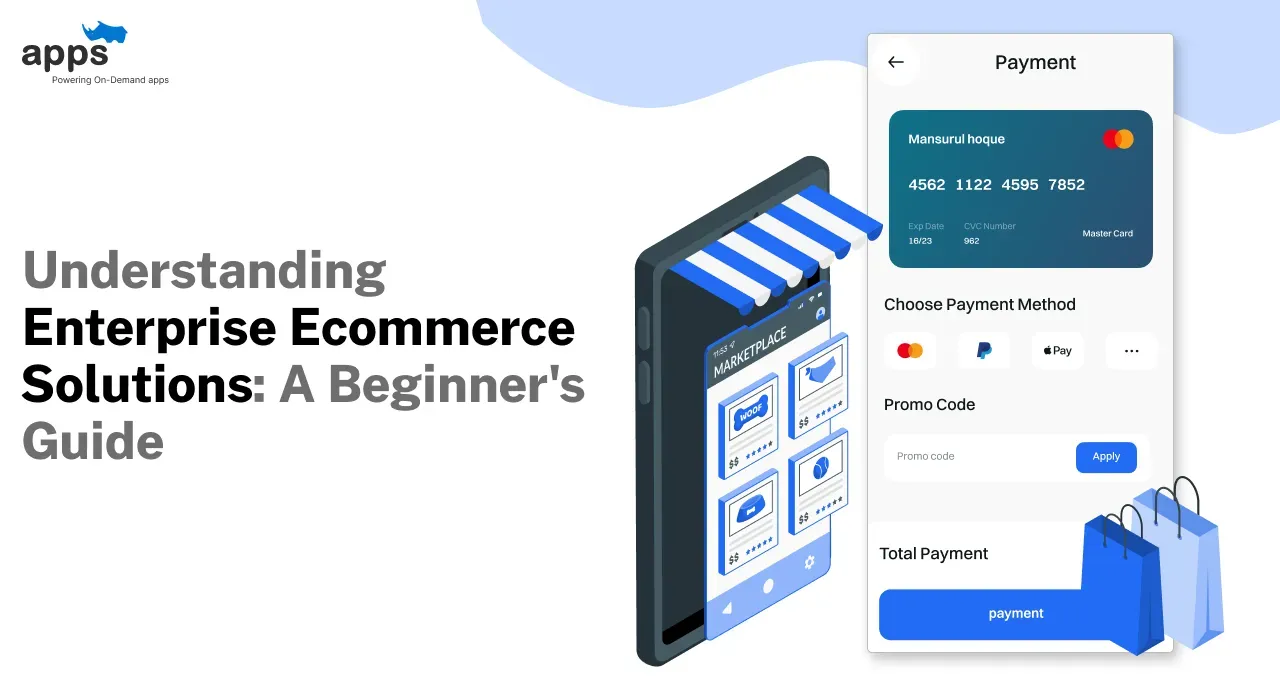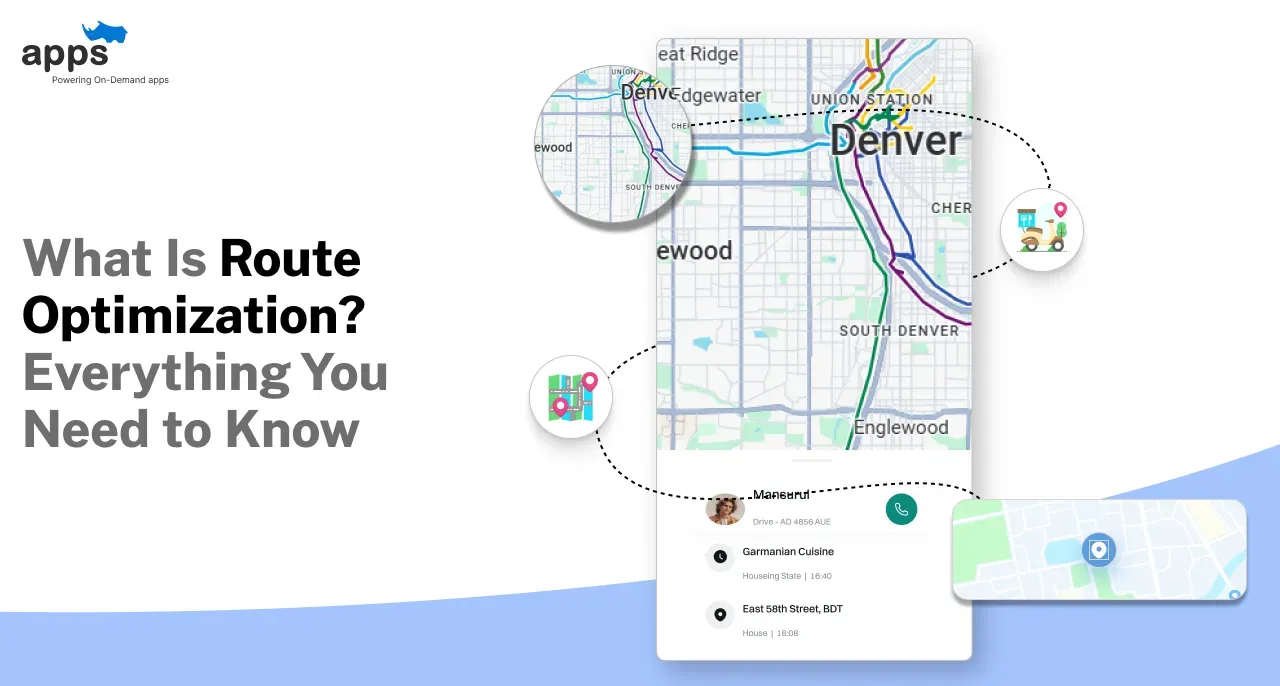- The Importance of Delivery Management in eCommerce
- Challenges Faced in Manual Delivery Management
- How a Delivery Management System can Help
- Additional Benefits of Using a Delivery Management System
- Choosing the Right Delivery Management System for Your Business
- Conclusion
- Frequently Asked Questions (FAQs)
Table of Contents
Why to Consider Delivery Management System for eCommerce Business

There is no point in running an e-commerce store if you can not provide proper and timely delivery to your customers. Yes, the dynamic landscape of online shopping survives only on certain factors, and prompt delivery is one of them.
Another thing is that there is no guarantee that by implementing a delivery management system you can achieve success, no, you need proper thoughtful planning on how to manage the delivery, how to keep track of your inventories, and how to deliver the required and ordered items to the exact doorstep timely.
So how will you do it? How will you implement a proper last-mile delivery solution in your e-commerce business that will drive your success and increase your return on investment?
Be with us in this reading, as we will discuss the importance, challenges, benefits and how can you select the perfect delivery management system for your specific business needs satisfying your customers and driving more growth on the go.
The Importance of Delivery Management in eCommerce

In the world of online shopping, the journey of a product from the seller to the buyer is just as crucial as the product itself.
How your items are delivered to your customers can make or break their shopping experience. Let's take a closer look at why the delivery management system is so vital in eCommerce.
Customer Satisfaction Hinges on Delivery
When customers place an order online, they eagerly await the arrival of their purchase. This is mostly applicable in instant services such as food delivery or any list-mile delivery solutions.
The entire shopping experience culminates in the moment when they receive their package. If the delivery is smooth, efficient, and on time, it enhances customer satisfaction.
On the other hand, delays, damaged packages, or mistakes during delivery can lead to frustration and disappointment, tarnishing the overall experience.
Standing Out in a Competitive Landscape
In the vast world of online shopping, competition is fierce and takes any turn at any time. Numerous e-commerce stores offer similar products, often at similar prices.
So how do you differentiate your last-mile delivery solutions? One effective way is by providing exceptional delivery service.
By offering a seamless and delightful delivery experience, you can make a lasting impression on your customers and there the delivery management system will come into the picture.
This will provide you an opportunity to shine and leave a positive mark in their minds, setting your store apart from the rest.
Challenges Faced in Manual Delivery Management

Many businesses still rely on manual processes to manage their deliveries such as taking orders on pen and paper and delivering them with their internal workers.
However, this approach poses several challenges that can hinder efficient and error-free delivery operations.
Inaccuracy and Errors in Order Processing
When managing deliveries manually, there is a high risk of inaccuracy and errors in order processing.
Manually inputting delivery details for each order increases the likelihood of mistakes in your customized meal delivery.
From misspelled addresses to incorrect item quantities, these errors can result in delays, additional costs, and ultimately, dissatisfied customers.
Suggested Reading:
How to Choose the Best Platform for Ecommerce Development?
Difficulty Managing Multiple Shipping Carriers
In the world of e-commerce, businesses often work with multiple shipping carriers to cater to different last-mile delivery solutions needs.
Coordinating these carriers manually can become a logistical nightmare, especially for customized meal delivery and food delivery analytics.
Juggling various carrier rates, delivery times, and tracking information can be overwhelming for food delivery analytics.
It's like trying to keep multiple plates spinning in the air, all while balancing knives and forks. This complexity can lead to delays, confusion, and issues with tracking packages accurately.
Limited Visibility and Tracking for Customers
One of the biggest frustrations for customers is the lack of visibility and tracking during the customized meal delivery process.
When customers have little or no information about the status of their package, they can feel left in the dark.
They might start questioning the reliability of your last-mile delivery solutions and food delivery analytics, lose trust in your delivery process, and become hesitant to make future purchases.
You can provide real-time tracking information through your delivery management system and empower customers with visibility into their customized meal delivery progress reinforcing their trust in your business.
How a Delivery Management System can Help

Let's dive into how a delivery management system such as customized meal delivery and food delivery analytics can revolutionize the way you handle shipping and make your eCommerce business run smoother than a well-oiled machine.
Streamlined Order Fulfillment and Shipping
Imagine orders flowing seamlessly from your store to the shipping dock without any hiccups.
With a delivery management system and food delivery analytics, you can automate this customized meal delivery process, ensuring orders are packed and sent out promptly providing a easy last-mile delivery solution.
You can provide a more efficient and reliable service to your customers by eliminating manual errors and reducing processing time.
Route Optimization for Faster Delivery Times

Picture this: orders being delivered to your customers in record time or maybe before the estimated time.
A delivery management system and food delivery analytics can optimize the routes for your delivery drivers, minimizing travel distances and maximizing the efficiency of your last-mile food delivery solutions.
By finding the most efficient paths, your packages can be delivered faster than ever before, impressing your customers with speedy service.
Real-Time Tracking and Improved Communication
A last-mile food delivery management system provides live tracking updates of the placed orders, allowing your customers to see exactly where their packages are at any given moment using their food delivery analytics.
This transparency not only gives your customers peace of mind but also opens up lines of communication. You can proactively notify customers of any delays or changes in the delivery process, keeping them informed every step of the way.
Suggested Reading:
How Ecommerce App Development Can Scale Your Business?
Reduced Costs Through Carrier Comparison and Negotiation
Think about saving money while providing top-notch delivery service. A delivery management system helps you compare shipping carriers, and find the best rates for your business and last-mile delivery solutions.
By analyzing carrier options and negotiating better terms, you can reduce your shipping costs and increase your profitability. It's like getting a discount at the store without compromising on service quality.
Additional Benefits of Using a Delivery Management System

But wait, there's more! Let's explore some extra perks of adopting a delivery management system for your e-commerce business.
Scalability to Meet Growing Business Needs
Imagine your business expanding and flourishing, handling more orders than ever. A delivery management system and food delivery analytics can scale with your business, accommodating increased shipping demands.
Whether you're processing ten orders a day or a thousand, the system can handle the load, ensuring that your delivery operations are always efficient and reliable.
Enhanced Inventory Management and Visibility

With a delivery management system, you can assess real-time visibility into your stock levels and customize meal delivery.
This will allow you to stay on top of inventory management and ensure that popular items are always in stock.
Accurate inventory information can prevent stockouts and provide a seamless shopping experience for your customers.
Improved Customer Service and Reduced Inquiries
With a delivery management system, you can enhance your customer service performance by providing accurate delivery information upfront.
This will minimize the need for customers to reach out and inquire about their orders, saving both you and your customers valuable time.
Proactively providing updates and addressing transit concerns can create a positive customer experience and build trust in your brand.
Suggested Reading:
How to Start an Online Ecommerce Business?
Choosing the Right Delivery Management System for Your Business

Finding the perfect delivery management system (DMS) and food delivery analytics for your eCommerce business can be a game-changer for your food delivery analytics too.
It's like discovering the missing puzzle piece that makes everything fall into place. But with so many options out there, how do you choose the right one?
Let's dive into some factors to consider when selecting a DMS.
Factors to Consider When Selecting a DMS
When evaluating different delivery management systems, you should keep in mind a few key factors.
These factors will help you determine whether a specific DMS is the right fit for your business. Let's take a look!
- Ease of Use: Look for a delivery management system with an intuitive user interface that doesn't require a Ph.D. in rocket science to understand and make navigation as easy as boiling water.
Remember, you're looking for simplicity, not a brain teaser.
- Scalability: As your business grows, you need a delivery management system to handle the increasing volume of orders.
Ensure that the system can scale with your business, accommodating any future spikes in demand without breaking a sweat or your bank balance.
- Integration with Existing E-commerce Platform: Smooth integration is essential with your existing system. You'll want a delivery management system that seamlessly integrates with your current eCommerce platform.
This makes order management a breeze and avoids any technical headaches down the road. It's like combining peanut butter and jelly—perfectly blended.
- Customization Options: Whether it's branding, reporting, or specific workflows, look for a delivery management system that allows for customization, so you can tailor it to your specific needs.
- Reliability and Support: If you are outsourcing, a delivery management system should be your reliable partner, not a flaky friend.
Are they responsive and helpful? Make sure you can count on them when you need assistance. Additionally, ensure the system has a solid track record of stability and uptime.
- Cost-effectiveness: Last but not least, consider the cost. You want a delivery management system that offers value for your money.
Compare pricing plans of different service providers and evaluate the features included. Look for a balance between affordability and functionality. It's like finding a treasure in the bargain bin—it's a steal!
Suggested Reading:
How to Maintain Your Ecommerce App for Long-Term Success?
Integration with Existing eCommerce Platform
One crucial factor when choosing a delivery management system is its integration with your existing last-mile delivery solution platform or food delivery analytics.
The last thing you want is a delivery management system that doesn't mesh well with your current setup.
You need a seamless connection between your e-commerce platform and food delivery analytics and the delivery management system to ensure a streamlined flow of information.
When evaluating integration capabilities, look for:
Compatibility
Ensure that the delivery management system can integrate smoothly with your specific e-commerce platform.
Check if the integration is built-in or requires additional setup.
Data Sync

The delivery management system should be able to sync order information, inventory updates, and customer data between your e-commerce platform and the delivery management system.
This ensures that everything is up to date-and accurate across systems.
Automation
A good integration will enable automation, reducing manual data entry and improving efficiency. Look for features like automatic order syncing, real-time inventory updates, and customer data transfer.
By seamlessly integrating your e-commerce platform, you can achieve a harmonious workflow, reduce errors, and provide better customer service. It's like having a synchronized dance between your platforms—effortless and impressive.
Conclusion
I hope that after this detailed discussion, you have a clear idea about how the delivery management system plays a key role in the success of any e-commerce business. Properly implementing delivery management software can directly impact your customer’s satisfaction and differentiate your e-commerce store from your competitors.
By implementing various systems such as real-time order tracking, communication channels, and scalability functions you can meet your growing business needs.
Also, keep in mind the service provider you are about to hire knows their job properly and has a support system in place.
By keeping all these key points in mind, you can easily implement a delivery management system software for your e-commerce business and achieve success by properly fulfilling orders and providing exceptional service to increase customer loyalty and satisfaction.
Contact AppsRhino Today!
Frequently Asked Questions (FAQs)
What is a Delivery Management System and how can it benefit my eCommerce business?
A Delivery Management System is a software solution that helps businesses efficiently manage and track their deliveries.
It can benefit an eCommerce business by streamlining order fulfillment, optimizing delivery routes, and improving customer satisfaction through enhanced communication and transparency.
How does a Delivery Management System help improve customer satisfaction and enhance the overall shopping experience?
A Delivery Management System provides real-time tracking, proactive communication, and on-time delivery, leading to a more positive and reliable customer shopping experience. This, in turn, increases customer satisfaction and fosters loyalty to the business.
What features should I look for in a Delivery Management System to streamline my order fulfillment and shipping processes?
Key features to consider include automated order processing, route optimization, real-time tracking, efficient carrier management, and integration with existing eCommerce platforms.
These features help streamline operations and provide a seamless delivery experience.
Can a Delivery Management System help me reduce shipping costs and increase profitability?
Yes, a Delivery Management System can aid in reducing shipping costs through carrier comparison, negotiation, and route optimization.
It helps businesses find the most cost-effective shipping solutions, ultimately increasing profitability.
How does real-time tracking and customer communication improve transparency and trust in the delivery process?
Real-time tracking allows customers to monitor their package's progress and receive timely updates, increasing transparency.
Improved communication provides peace of mind, builds trust, and allows businesses to address any delivery concerns promptly.
Is it necessary to integrate a Delivery Management System with my existing eCommerce platform, and what are the benefits of doing so?
Integration ensures a seamless flow of information between systems, enabling automated order syncing, real-time inventory updates, and streamlined data management. This integration enhances efficiency, reduces errors, and improves customer service
Table of Contents
- The Importance of Delivery Management in eCommerce
- Challenges Faced in Manual Delivery Management
- How a Delivery Management System can Help
- Additional Benefits of Using a Delivery Management System
- Choosing the Right Delivery Management System for Your Business
- Conclusion
- Frequently Asked Questions (FAQs)





